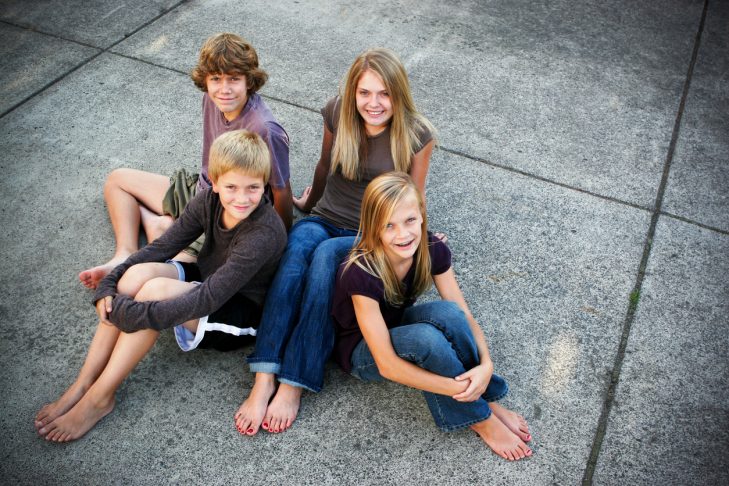This April, I will celebrate my first real Passover. I’ve celebrated it before, of course, and I’ve cooked countless Passover foods — my vegetarian matzah ball soup is aggressively delicious. I’ve even hosted my own Seder. But, as someone who finally became officially Jewish in August after a lifetime of a complex familial relationship with religion, this is my first Passover as a Jew.
I’m looking forward to spending it with my aunt and her friends that have become part of our extended family. Laila will make us think. Ellen will exhort us to feel. My newly-adult cousin will startle us with his casual brilliance, proving yet again that he has left the small, shy creature he once was behind. We mark time. We mark growth. We mark change.
Some years, we go around the table and say which of the Haggadah’s four children we identify most with that night. It’s always interesting, but I hope we don’t do it this year. Because I don’t think I could choose. Like many of us, I am all four children wrapped up in one contradictory self.
I recognize myself in the wise child, or, at least, I want to. The wise child wants to know everything, particularly what statutes, testimonies, and laws God has commanded about Passover. She does everything right, because that’s her role in our covenantal relationship with the divine. She is Responsible with a capital R. And I try very hard to be responsible. I want to know the rules so that I can play by them — and so that no one will get hurt. And, to be quite honest, I love learning the whats and the whys and the hows of Judaism, of relationships, of the world.
But sometimes I find it hard. I’m not always sure why I should care about certain things when there is so much else to worry about. If the intent is there and the result is the same, why should we have to do things exactly as we should? And then I see myself in the wicked child. “Why do you care?” she asks. And I ask it, too. Why do you care which tune we sing for that blessing? Why do you care about the ways that I personally observe Shabbat? Why do you care about what shoes I wear with that dress or whether or not we’ve taken pictures of every floral arrangement sent to a family funeral? I hate rules I don’t understand. I resent them. But, just like the wicked child, I still care enough, I value the relationship enough, to ask.
It’s new for me to identify with the simple child, but this year, I do. My brain is usually too busy analyzing and rebelling and connecting to ask, “What is this?” like she does. But I’ve found myself stopping to ask it more often now. Walking down the seven steps of the mikvah into the transformational, living water: “What is this?” Learning the finer points of the laws about moving Shabbat candles from my Christian sister who’s worried about me burning down the house: “What is this?” Nodding my head without hesitation when I’m asked if I’m Jewish: “What is this?” I am in awe, and I know I will be when Passover comes.
But I think my favorite of the children has always been the one who does not know how to ask. I identify more with this child than I sometimes think I should — I am, after all, a hyperverbal, know-it-all writer, and I’m not supposed to lose my words. Like her, I struggle to find an entry point into the things I don’t understand. Like her, I get overwhelmed by raw, inarticulable emotion. Like her, sometimes all I can do is listen or laugh or cry. But she is welcomed and loved, and it’s because of her that we tell our stories, year after year, generation to generation.
I wouldn’t be who I am without each of these children. Accepting them all has been a struggle, but I’m learning to love each of them in myself. Because each of them has a place in our tradition, in our community, and at our Seder tables.
This post has been contributed by a third party. The opinions, facts and any media content are presented solely by the author, and JewishBoston assumes no responsibility for them. Want to add your voice to the conversation? Publish your own post here. MORE



